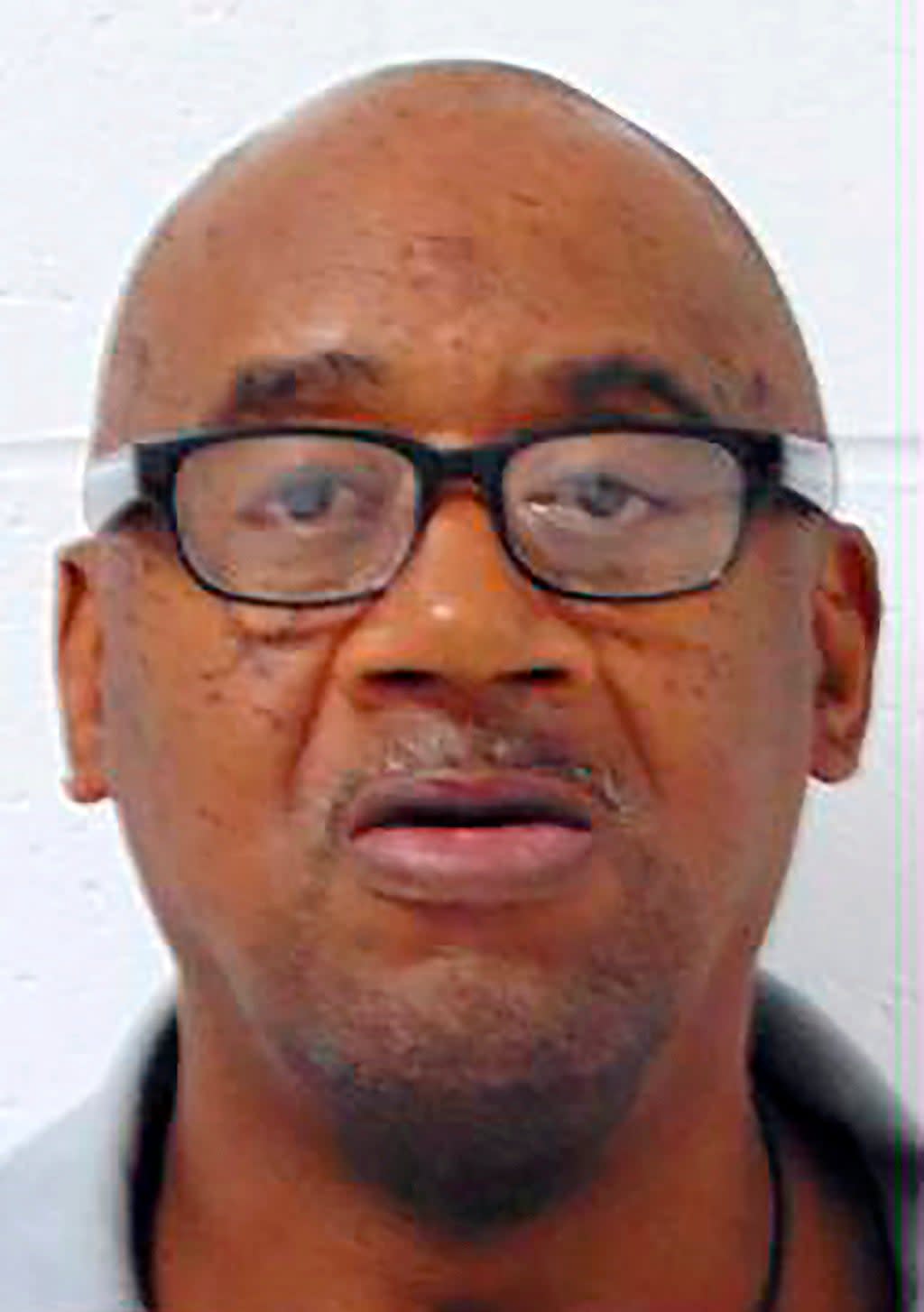Ernest Johnson: Missouri executes death row inmate despite urgent pleas from lawmakers and Pope Francis

- Oops!Something went wrong.Please try again later.
- Oops!Something went wrong.Please try again later.
Despite interventions from members of Congress and Pope Francis and a last-minute appeal to the US Supreme Court, Ernest Johnson, 61, was executed in Missouri on 5 October.
A public defender for Mr Johnson, who was convicted in the murders of three people nearly three decades ago, argued that the state’s killing of a man with an intellectual disability is unconstitutional.
Republican Governor Mike Parson – who championed Missouri as the “most pro-life state” as he advanced anti-abortion legislation – denied Mr Johnson clemency.
“The state is prepared to deliver justice and carry out the lawful sentence Mr Johnson received in accordance with the Missouri Supreme Court’s order,” Governor Parson announced.
On Tuesday, the nation’s high court denied Mr Johnson’s appeal.
Mr Johnson’s legal team argued to the Supreme Court that there exists “no tangible harm” to delay his execution while the courts “constitutionally considered” his disability, pointing to a critical 2002 Supreme Court ruling that the government could not execute people with an intellectual disability, in violation of the Eighth Amendment.
Attorney Jeremy Weis argued that multiple exams have proven Mr Johnson’s intellectual disability and diagnosis with foetal alcohol syndrome. In 2008, Mr Johnson also suffered the loss of 20 per cent of his brain tissue due to removal of a benign tumour, according to Mr Weis.
Mr Johnson was killed by lethal injection at a state prison in Bonne Terre at 6pm CST. He died at 6:11pm.
He was the first person to be executed in the state since May 2020, and he is the seventh person to be executed in the US in 2021.
Mr Johnson was sentenced to death in 1999 following the murders of three people during a robbery at Casey’s General Store in Columbia in 1994.
His execution followed widespread calls among Missouri’s faith leaders, elected officials and advocates as well as US Reps Emanuel Cleaver and Cori Bush urging the governor to halt the execution, which the lawmakers called a “a grave act of injustice.”
“The fact of the matter is that these death sentences are not about justice,” they wrote in a letter to the governor. “They are about who has institutional power and who doesn’t.”
Ms Bush also pointed to racial disparities among death row inmates and within a criminal justice system that finds that killers of white victims are seven times “more likely to receive the death penalty than the killers of Black victims.”
“The death penalty is a tool that perpetuates racialized violence,” she said. “It needs to be abolished. Ernest Johnson must not be executed.”
In a letter to the governor from Archbishop Christophe Pierre, the Vatican’s ambassador to the US, Pope Francis urged him to grant Mr Johnson “some appropriate form of clemency.”
“His Holiness wishes to place before you the simple fact of Mr. Johnson’s humanity and the sacredness of all human life,” Archbishop Pierre wrote.
In response to Mr Johnson’s stay of execution request, Missouri’s Republican Attorney General Eric Schmitt on Monday said that the murders for which Mr Johnson was convicted “plainly reflect the offender’s ability to plan, strategize, calculate, and scheme effectively.”
Writing in The Kansas City Star, former Governor Bob Holden, whose office saw the killings of 20 people on death row, said that “if our state is to be guided by the rule of law, we must temper our understandable anger with reason and compassion for the most vulnerable among us, including Ernest Johnson.”
Anti-death penalty activist Sister Helen Prejean said Mr Johnson’s execution is “unconstitutional under all existing legal precedents.”
“He has the mental capacity of a 9-year-old child and is missing [20 per cent] of his brain mass,” she said. “The Supreme Court’s failure to do anything to stop this is a moral failing of the highest order.”

